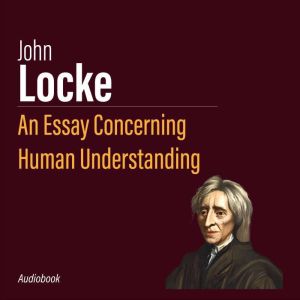

An Essay Concerning Human Understanding
Author: John Locke
Narrator: Liam Johnson
Unabridged: 13 hr 47 min
Format: Digital Audiobook Download
Publisher: Stream Readers
Published: 03/02/2023
Categories: Nonfiction, Philosophy, Epistemology


Author: John Locke
Narrator: Liam Johnson
Unabridged: 13 hr 47 min
Format: Digital Audiobook Download
Publisher: Stream Readers
Published: 03/02/2023
Categories: Nonfiction, Philosophy, Epistemology
John Locke, FRS (1632–1704) was an influential English philosopher and physician widely known as the father of classical liberalism. The son of an attorney in a middle-class family, Locke attended Oxford and studied medicine. The first earl of Shaftesbury introduced Locke to the world of politics, and early in their association, Locke served as secretary of the Board of Trade and Plantations and secretary to the Lords Proprietors of the Carolinas. In 1696, Locke was made Commissioner of Trade, a position he held for several years. His most well-known works include Two Treatises on Government (1689) and An Essay Concerning Human Understanding (1690).
Sometimes, the role of an artist or scientist is to express things that which people know to be true however can not or do not express themselves. This is how reading Locke feels like. Exposition: The observations noted throughout the text are from the common experiences and phenomena in the lives of......more
The Essay Concerning Human Understanding is sectioned into four books. Taken together, they comprise an extremely long and detailed theory of knowledge starting from the very basics and building up. Book I, "Of Innate Ideas," is an attack on the Cartesian view of knowledge, which holds that human be......more
Human understanding all begins with the elementary particles and grasping how these mindless elements of matter formed our bodies to become conscious of themselves and their existence. Even though Locke, a staunch proponent of empiricism, believes our minds to be a tabula rasa that are equipped with......more
Though Locke himself cautions (late in Book IV, the final volume of the Essay) against the Argumentum ad Vericundeum (from "authority")—against giving undue credence to an argument merely because of the reputation* of the person making it (e.g. "the Aristotelian unities must be respected by any play......more
There is absolutely no doubt that Locke's ideas and arguments are very straightforward and clear in style. He's the father of empiricism, among many other schools of thought (i.e. liberalism and individualism, which in essence, forms the proliferating values of the global society). But he's a dude fr......more